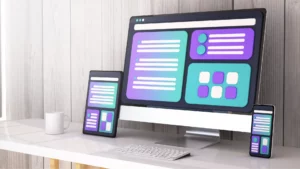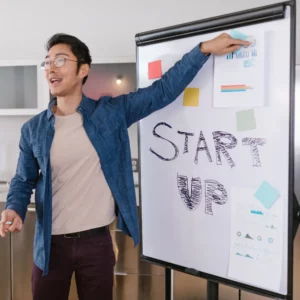
Fit-Tech startup Quell raises $3 million | Startup interview
Emil interviews the CTO of Quell after they have secured $3 million to take their product to the next level!
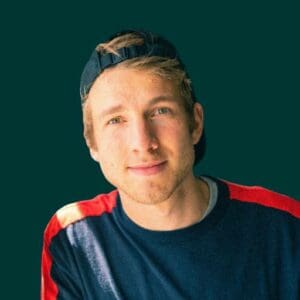
Stay in the loop with our latest updates
Interview with the CTO of Quell, Martin Tweedie
In this collaboration with UK fit-tech startup Quell, I caught up with CTO Dr Martin Tweedie to talk about their journey so far. The last year has seen Quell go from early prototypes to an incredibly successful Kickstarter campaign and subsequently raise $3 Million to bring real fitness gaming to life.
This interview provides a real eye-opener into a brilliant example of a tech startup in 2021. So whether you are an entrepreneur looking for an insight, or a CTO, or perhaps an innovative business owner, this is for you!
This interview is in video form and has also been transcribed below if you would prefer to digest it in that way. Also, if you want to collaborate with us just like we have done here with Quell, be sure to get in touch with us and our marketing team will get back to you.
What is your name and role at Quell?
Hi my name is Martin, I’m the CTO of Quell. So I’m in charge of all the electronics that the wearable device is running. Which means the embedded platform that maps all of the users actions into the game.
What is your background and how did the Quell team form?
My education is that I studied material science at the University of Oxford. I finished my undergrad and moved straight into a PhD there as well making electronic devices from nanomaterials like graphene.
During that time I gained all the programming experience, electronics, and hands-on prototyping. Also, during my time at Oxford, I met my very good friend Cam who is now the CEO of Quell. Cut forward five years later I wrapped up my PhD and we were discussing an idea about using video games as a way to encourage positive habits in people, and exercise like this especially combat exercise or boxing is a natural fit that is a very visceral, engaging experience for people that you can do in a very small compact space. Frankly, it brought in a lifelong love of video games.
Through Cam we were able to pull in two other talented people. We have Lorenzo who was studying design masters with cam at the time, and that has a lot of experience with wearable devices and med-tec, so he is our physical product designer. We work together on the hardware stream to make the electronics and the physical aspect of the device just work seamlessly together. Then there is Doug who is the final member of the founding team, who is across all things marketing and operations.
What is Quell’s vision?
We want to use the mechanics of video games to make home exercise something that people can enjoy and commit to long term. But, ultimately we see Quell as a platform where we want to release more games, more hardware, targeting more sports or even more healthy habits like healthy eating or sleeping habits. Frankly, we are completely blue sky thinking here, however, nothing like that in the pipeline at the moment as we are laser-focused on the core offering right now.
I think it is a really exciting space to be in where using these machines that have very clear habit-forming powers, both good and bad, can create a healthy habit for people – exercising. A tagline that we were suggested was ‘gaming without the guilt’. It has some good connotations and some bad ones, but it captures what we are going for quite well.
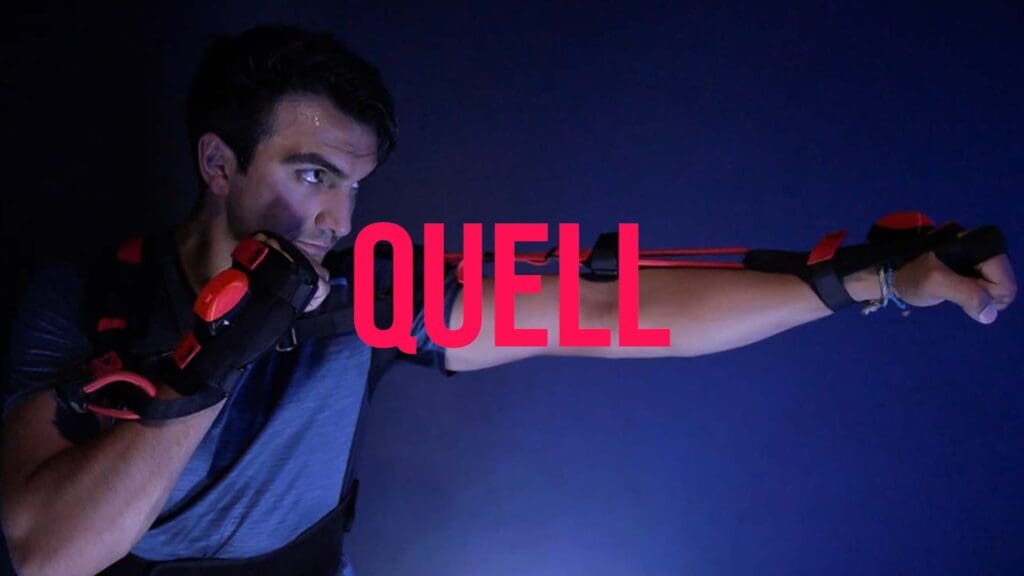
At hiyield, we talk a lot about startups building MVP’s to validate an idea, is this an approach that you took?
Y Combinator showed us the value of iterating on what you have very quickly and putting it in front of people as early as possible, which is the whole idea of an MVP. Also, to validate your idea with the minimum time to show the value of it without going down rabbit holes of things that people don’t want. This is the core of YC’s ethos around making what people want. If you don’t know if anybody wants it then why would you spend five years building something?
This is exactly the opposite approach we took with Quell. We took a very organised sprint towards something that works. It is a working prototype of the hardware and the game. There’s not much of a story at this point I’d say but everything is working and it really resonated with people.
There have always been small changes through what people love, and something we are very keen to do is understand how to make the user journey as simple as possible. Something that people flagged very early is that there might be too many steps to put the gauntlet on, so we have been optimising this process from design and also simplifying how it is put on. Any small barrier, especially with a habit that is quite easily broken (which is exercise), can prevent you from doing it. We’ve got to make that process as smooth as possible!
Do you think the pandemic has propelled the market of home workouts?
Funnily enough, when we were putting this idea together the pandemic was only just at the beginning and was unknown in the west. So though I would love to claim that it was a response, it just coincided quite nicely. Of course, the pandemic has been terrible for so many, but for home exercise, it has caused an upswing. If you’re stuck at home it is very easy to fall into a bad habit, but simultaneously people have realised that exercise is such a great escape and way to unwind, relax, or let out stress. It’s accelerated our drive to get Quell into people’s hands.
As CTO, I can imagine there is loads to do, both building the gauntlet and software. What do you think the biggest challenge is for the product?
We know that the core mechanics are fun but I think making something that helps people commit to that healthy habit of exercising long term is always going to be a challenge because exercising comes with a lot of difficulties for people. We have focused on minimising those barriers by making it something you can do at your own home, it provides privacy where people of any abilities feel much more comfortable to start.
Building in those mechanics that make a great game something that people want to come back to will be an interesting challenge in the context of exercising as well, but what I can say is that we have some great people in our team that has worked on some titles that are in more of the category to create habits forming relationships for people.
I’m not a developer, but for those that are watching and might be interested, what technologies are you using to build the game?
The game is built in Unity, probably one of the two big engines, the other one being Unreal. Then we are building the wearable device that runs machine learning right there on the device itself. We are using TensorFlow to do real time inference of what our users are doing.
Now that your team is growing, can you give me an idea of what a day in the office is like at Quell?
We have our daily standups where everybody is saying what they are going to do that day, talking through things that need input from other people, challenges they are facing or things that might slip in terms of deadlines. Then we have a morning slot where we chunk through our meetings, ‘problem-solving’ we like to call them, and any other facetime contact.
Something we built in very early on and has proved to be very popular especially for our development team is the idea of having protected time. In the afternoon we have chunks of time where if you’re going to book a meeting then you have to have a very good reason for it because that gives people who need to do deep work that space to lock in for hours at a time to just really focus on executing on the things they need without people interrupting them all the time. That one I believe is quite rare in these sorts of companies but I push pretty hard for it because doing development stuff myself I have run into exactly that problem getting lifted out of your flow is just about the worst thing for productivity. So it’s easy to say it has proved to be very popular with our development team so we are going to keep that one going.
To wrap-up the day we clock-off with another stand-up where you list the things that you did do, anything that you didn’t, and why.
What advice would you give to other startups?
I think the biggest advice I could give is to find out what people want before you build anything. This comes back to the idea of MVP.
How do you do that?
You find out what people want, you ask them. Find a pain point. Just understand something or anything that causes people problems in their day or would improve their lives in some way.
Then test it, build it, make something, it’s probably going to suck, put it in front of people, understand why it doesn’t work, fail fast, try again.
Eventually, you will find smoothing that resonates with people I’m sure.
As a company, we love that idea, but we put a little twist on it which is to make something that people love because ultimately we are making a video game so it better be fun and we want people to love it.
When are we expecting QUELL’s first product release?
We are launching Quell in Q4 of this year!
What is your favourite childhood game?
That is a tough one and is very hard to pick just one. I would probably say the game that I played the most and that had the biggest impact on me was Half-Life. I used to play through that one with my brothers where we probably played through it ten times. We had this set up where one of us would drive the left-hand movement keys and the other one would drive a mouse. Somehow we made it through most of the game with this setup.
Sources:
More like this
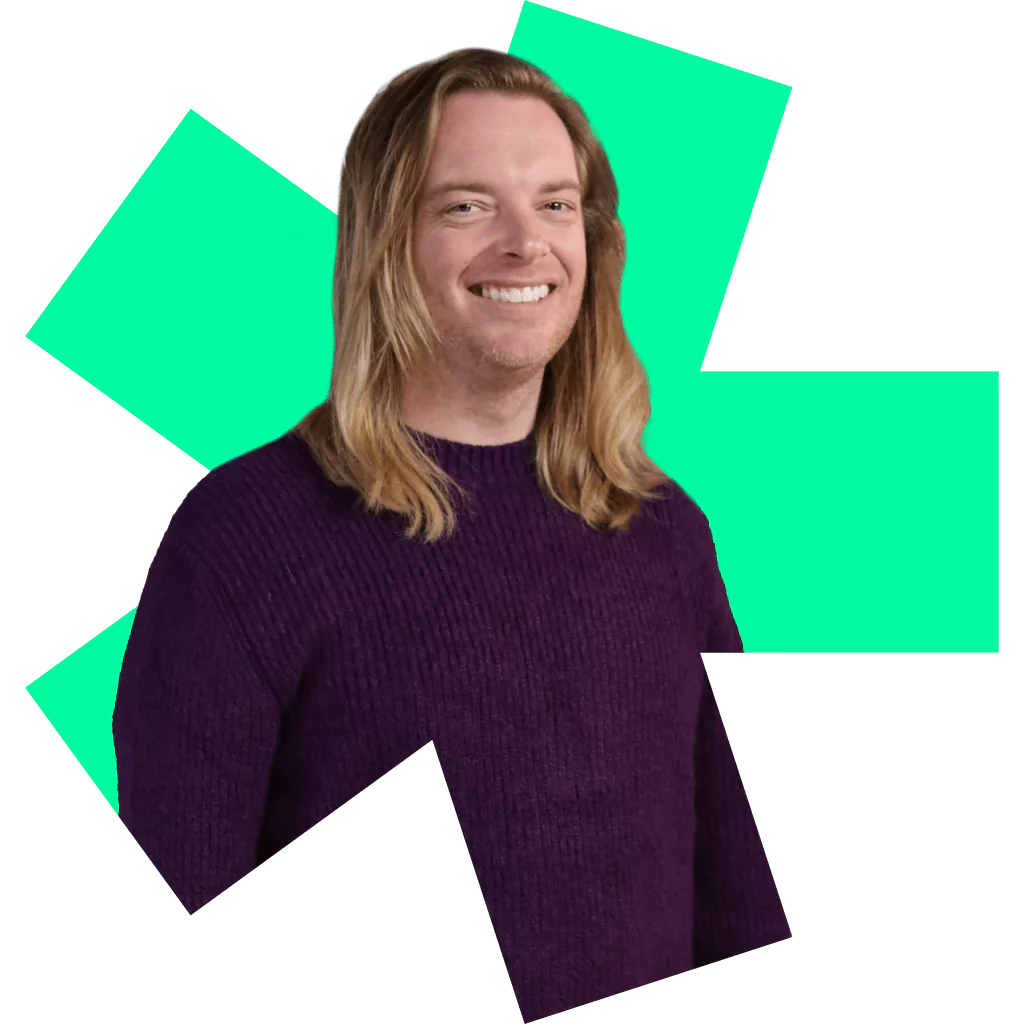
Let’s get started!
Great digital products aren’t just built, they’re co-created. Together, let’s breathe life into your idea, crafting solutions that stand out.
Contact
